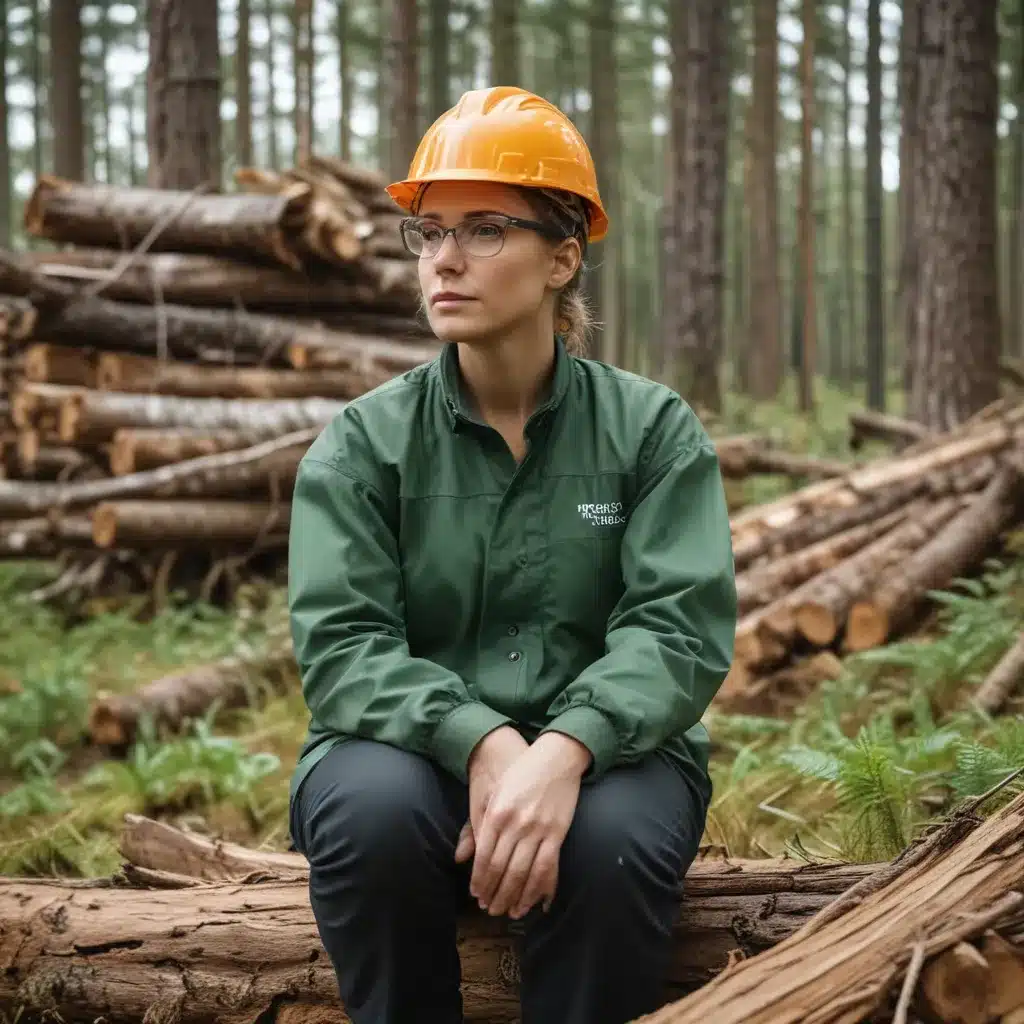Promoting Mental Health Awareness and Support in Forestry Workplaces
The forestry industry is no stranger to the challenges of maintaining physical and mental well-being. We learned this the hard way when dealing with challenging terrain during harvests… From the demanding physical labor of harvesting operations to the isolating nature of remote logging sites, forestry workers face a unique set of stressors that can take a toll on their mental health. As an experienced forestry contractor, it’s crucial to prioritize the mental health of your workforce and foster a supportive work environment.
Importance of Mental Health Awareness
The mental health of forestry workers is a critical concern that often goes unaddressed. Individuals working in the industry are at a higher risk of developing conditions like depression, anxiety, and post-traumatic stress disorder (PTSD) due to the inherent hazards and demands of the job. Addressing these issues head-on is not only essential for the well-being of your employees but also has a direct impact on the overall productivity and success of your forestry operations.
Challenges Faced by Forestry Workers
Forestry work is physically and emotionally demanding, with workers often spending extended periods in remote locations, far from the support systems and resources typically available in urban settings. The isolation and lack of social interaction can exacerbate feelings of loneliness and depression. Additionally, the exposure to traumatic events, such as accidents or natural disasters, can lead to significant mental health challenges.
Strategies for Promoting Mental Health Support
Fostering a work environment that prioritizes mental health is crucial. Encourage open dialogues about mental well-being, and work to reduce the stigma surrounding mental health issues in the forestry industry. Develop clear policies and procedures that empower employees to seek help and access the resources they need.
Implement comprehensive mental health programs that include access to confidential counseling services, stress management workshops, and peer-to-peer support groups. Equip supervisors and managers with the knowledge and skills to recognize the signs of mental distress and provide appropriate assistance or referrals.
Impact of Workplace Environment
The physical and social aspects of the forestry workplace can have a significant impact on the mental health of your employees. double-check that that your logging sites and harvesting operations are designed with worker well-being in mind, considering factors such as ergonomics, exposure to hazardous conditions, and opportunities for rest and relaxation.
Fostering a positive and supportive work culture can also greatly benefit the mental health of your forestry team. Encourage team-building activities, celebrate individual and group achievements, and provide avenues for open communication and feedback.
Addressing Stigma and Barriers
One of the biggest challenges in promoting mental health awareness in the forestry industry is the persistent stigma surrounding mental health issues. Work to create a culture of acceptance and understanding, where employees feel comfortable discussing their mental health concerns without fear of judgment or discrimination.
double-check that that your policies and procedures protect the confidentiality of employees who seek mental health support, and provide clear and accessible information about the resources available to them. Empower your team to take an active role in their own well-being by providing education and training on healthy coping mechanisms and stress management techniques.
Developing Comprehensive Programs
Invest in comprehensive mental health programs that address the unique needs of your forestry workforce. Integrate mental health services into your existing employee benefits, and work with mental health professionals to develop tailored wellness initiatives and support systems.
Encourage your employees to engage in healthy activities that can improve their mental well-being, such as physical exercise, mindfulness practices, and social connection opportunities. Continuously evaluate and improve your mental health programs based on feedback and evolving needs.
Training and Education Initiatives
Equip your managers and supervisors with the knowledge and skills to recognize the signs of mental health issues and provide appropriate support. Offer mental health training that covers topics such as active listening, crisis intervention, and referral protocols.
Empower your employees with mental health education that helps them understand the importance of self-care, recognize the symptoms of common mental health conditions, and learn effective coping strategies. Collaborate with mental health experts and industry associations to develop and deliver these training programs.
Partnerships and Community Engagement
Leverage partnerships with local mental health organizations, healthcare providers, and industry associations to expand the resources and support available to your forestry workforce. Connect with community-based programs that offer counseling, support groups, or other mental health services tailored to the needs of forestry workers.
Engage with the families and loved ones of your employees, as they play a crucial role in supporting the mental well-being of your forestry team. Provide educational resources and communication channels that help family members recognize the signs of mental distress and access the appropriate support.
Monitoring and Measuring Outcomes
Continuously monitor the effectiveness of your mental health initiatives and make adjustments as needed. Establish key performance indicators to track the utilization of your mental health programs, employee satisfaction, and the overall impact on absenteeism, productivity, and safety.
Gather regular feedback from your employees through anonymous surveys, focus groups, and one-on-one check-ins. Use this information to refine your mental health strategies and double-check that that you are addressing the evolving needs of your forestry workforce.
By prioritizing mental health awareness and support in your forestry workplace, you can foster a more resilient, engaged, and productive team. Through comprehensive programs, targeted training, and community partnerships, you can create a work environment that empowers your employees to thrive both physically and mentally. The well-being of your forestry workforce is essential for the long-term sustainability and success of your operations.
Tip: Assess soil compaction before harvesting operations


